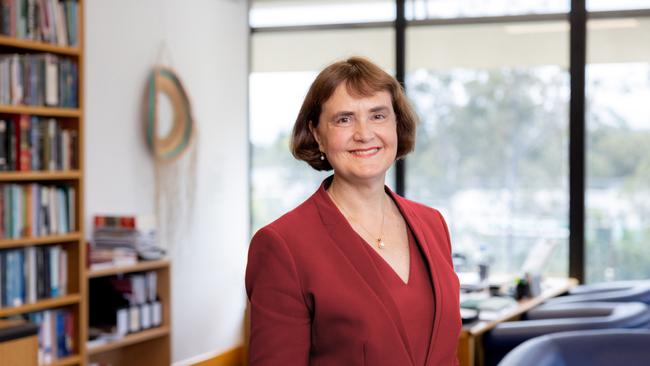The 2032 Brisbane Olympics is an opportunity to shine
Griffith University will do its part to ensure that the 2032 Brisbane Olympic Games leaves an enduring legacy.

For an event that lasts just a few short weeks, the Olympic and Paralympic Games have a significant and enduring legacy. The Australian tertiary education sector – and Griffith University in particular – has a unique opportunity to influence this legacy to create a brighter future for all.
Events such as the Games are, above all, a once-in-a-lifetime opportunity to benefit future generations. We learnt this first-hand as an official partner of the Gold Coast 2018 Commonwealth Games. Our partnership with the 2018 Games set a benchmark for the legacy opportunities made possible through a global sporting event.
The partnership was the first time a university had engaged so deeply with a major event of this scale. Through it, we were able to offer more than 1000 Griffith students unparalleled opportunities with both the organising committee and its many partners working to make the Games happen. In return, they gained practical experience working on Australia’s biggest sporting event in a decade.
Beyond these unique student and engagement opportunities, the knowledge we gained through the Gold Coast Games has helped Griffith better understand and establish a best-practice method of working with partners.
We have leveraged our experience into burgeoning relationships with industry leaders such as Gilmour Space Technology and supply transparency company Everledger, among others.
We have also seen multiple legacy projects arise from our partnership with the Games and go on to have local, national and even global impact.
One such project is Professor Michael Good’s ongoing research into malaria vaccines through our Institute for Glycomics – an official legacy project of the Games. Nearly half of the world’s population lives in malaria-endemic areas worldwide – many of them in Commonwealth countries.
Four years after the Games, Professor Good and Dr Danielle Stanisic are now commencing phase 1 clinical trials for a vaccine that can be freeze-dried for easy transportation to malaria-endemic countries.
The 2018 Games facilitated the growth of the Gold Coast Health and Knowledge Precinct, home to Griffith’s Advanced Design and Prototype Technology (ADaPT) Institute. Drawing on our capabilities in health, 3D design and material sciences, ADaPT has used 3D-printed biological engineering constructs to help drive research into tissue engineering and regenerative medicine.
Also, within the Institute the Griffith Centre of Biomedical and Rehabilitation Engineering (GCORE) is developing miniaturised wearable sensors that quantify and interpret human movement.
Alongside this advancement, the development of our Digital Athlete – a 3D model that captures an individual’s anatomy to allow athletes and coaches to design highly personalised training programs and more – is also pushing the boundaries of injury prevention and rehabilitation.
Our research into the cultural value of elite and community sport alike represents another vital area of investigation. As a leader in multidisciplinary research dedicated to advancing gender equity in sport, our commitment to a more equal sporting landscape is augmented by the GAPS (Gather Adjust Prepare Sustain) program.
This initiative offers emerging Pacific athletes and para-athletes and their coaches access to the same skills, knowledge, and resources that benefit our own athletes. The program, and others with a similar community focus, promotes positive social change in sport and in disadvantaged communities beyond our borders.
These are just a handful of the legacy impacts our partnership with the Commonwealth Games yielded in the few years since the event. As we look ahead to the 2032 Olympic Games, universities must think about how they can accelerate critical social change, buoyed by the event’s explicit focus on advancing human rights, climate action, diversity and inclusion. Griffith is already leading the way in many of these fields through our extensive industry collaborations and key research programs.
The projected social and economic benefit of the 2032 Games is estimated to be up to $8.1bn for Queensland and $17.6bn for Australia – but through collaboration between industry, government and researchers, the longer-term benefits can be much greater.
Together, we must do our part to ensure that long after that great enduring symbol of the competitive spirit – the Olympic flame – is extinguished at the closing ceremony, the legacy of the 2032 Brisbane Olympic Games burns brightly for decades.
Carolyn Evans is Vice-Chancellor of Griffith University.
-
Read more: Stories from Research Magazine 2023



To join the conversation, please log in. Don't have an account? Register
Join the conversation, you are commenting as Logout